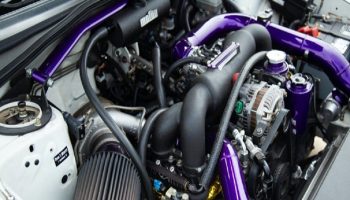Every detail matters in the world of corporate logistics and transportation, particularly in the context of fleet management. Steering is one important part that is often disregarded. Vehicle performance depends heavily on a well-maintained steering system, which affects not only driver comfort and safety but also fuel economy. Over time, cars with well-functioning steering systems may use much less gasoline because they can retain greater control and stability.
The Relationship Between Fuel Consumption and Steering
Tire pressure, engine performance, and vehicle aerodynamics are just a few of the variables that affect fuel economy; the steering system is also quite important. Poor handling may be caused by worn-out or misaligned steering components, which can force the driver to make unnecessary steering adjustments. This overexertion leads to wasted energy expenditure, which raises fuel consumption in addition to compromising vehicle stability. On the other hand, a precise steering system makes driving more economical by requiring less power to guide the car, which eventually results in fuel savings.
The Effect of Damaged Steering Components
Companies often ignore steering system failure symptoms until they worsen. Misalignment may be caused by deteriorated tie rods, ball joints, or a broken steering rack. The steering wheel may feel loose or the car may pull to one side, as seen by the driver. These problems may cause the car to drag, requiring the engine to run at a higher pressure and using more gasoline. In order to reduce these issues and maintain cars’ optimal fuel efficiency, it is recommended that steering component repairs and routine inspections be performed by the Auto Repair in Mesa, AZ based services.
Syncing Expenses and Benefits
Investing in steering system repairs is not just a cost; rather, it’s a calculated financial move that will save money in the long run. Businesses that oversee large fleets need to take the whole cost of gasoline into account. According to research, even a little improvement in fuel economy over time may result in significant cost savings. For instance, depending on the towing capability and hours traveled, a commercial vehicle might save hundreds of dollars a year if appropriate steering maintenance increases fuel efficiency by only 1 mile per gallon.
Preventive Maintenance Techniques
Businesses need to implement proactive maintenance procedures if they want to reap the advantages of increased fuel economy. The maintenance plan should include routine examinations for wear and tear, alignment adjustments, and fluid changes for the steering system. Businesses may prevent more serious difficulties later on that might result in unforeseen expenditures and greater fuel consumption by keeping an eye on the condition of the steering system and correcting any problems as soon as they arise.
Last Words
In the end, steering system maintenance is an essential part of a whole fleet care plan. Businesses that prioritize the health of their steering systems not only increase driver safety and vehicle longevity, but they also reap the benefits of increased fuel efficiency.






